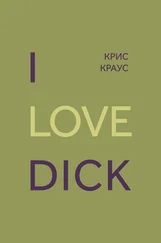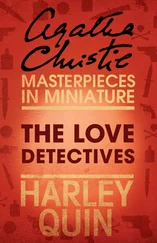3. According to David Rosenhan, schizophrenia is a self-fulfilling diagnosis. In his experiment, eight sane people gained admission to psychiatric hospitals by claiming to hear voices. Though from that point on they acted “normally,” the staff used everything they said and did as proof of the original “psychosis.”
4. Since schizophrenics are at home in multiple realities, contradictions don’t apply to them. Like cubist chemists, they break things down and rearrange the elements.
5. I like the phrase “paleologic” because it sounds Egyptian. At the end of AC/DC , a play by Heathcote Williams, the character Perowne performs an operation known as self-trepanning. Perowne, a vagrant mathematician, just gets bored by all the sex & mindfuck antics of his druggie friends. Because he doesn’t pine for “human warmth” he doesn’t dabble in psychology. Perowne’s more interested in the flow of systems. Trepanning, as pioneered in London by Bart Hughes and Amanda Fielding, entails the drilling of a hole inside the skull. Bleeding from the wound expands the capillaries around the trepan-subject’s pituitary gland. The Third Eye opens. I don’t know how they figure out the spot or the exact depth of the incision, but Amanda Fielding made a movie where she does it to herself in a kitchen. And in the play, when finally Perowne trepans himself, his speech explodes. He rants, he sings in hieroglyphics.
6. Félix Guattari, co-author with Gilles Deleuze of Anti-Oedipus — Capitalism and Schizophrenia , objected to Arieti’s use of the word “paleologic” in describing schizophrenia. “Paleologic,” Félix said once, “implies returning to a vague primeval state. But on the contrary—schizophrenia is highly organized.” Félix of course was expanding on his analogy between capitalism and schizophrenia. Both are complex systems based on paradox in which disconnected parts operate according to hidden laws. Both rationalize fragmentation. Capitalism’s ethics are completely schizophrenic; i.e., they’re contradictory and duplicitous. Buy Cheap, Sell Dear. Psychiatry tries its hardest to conceal this, tracing all disturbances back to the Holy Triangle of Mommy-Daddy-Me. “The unconscious needs to be created,” Félix wrote in Mary Barnes’ Trip . A brilliant model.
Still, Perowne’s gentleness reminded me of Ruffo’s.
7. Schizophrenia consists of placing the word “therefore” between two non-sequiturs. Driving up to Bishop last week I had two beliefs: I wouldn’t get a speeding ticket; I will die within the next five years. I didn’t get a speeding ticket, therefore—
(When your head’s exploding with ideas you have to find a reason. Therefore, scholarship and research are forms of schizophrenia. If reality’s unbearable and you don’t want to give up you have to understand the patterns. “Schizophrenia,” Géza Róheim wrote, “is the magical psychosis.” A search for proof. An orgy of coincidences.)
Two hours ago I took a break from writing this to take a walk before the sun went down. I had an urge to play Willie Nelson’s “Crazy” on the Red Hot Country CD before going out, but didn’t. When I turned the bend on 49th Terrace, my usual walk, Crazy sung by Patsy Cline was pouring, I mean POURING, out the windows of a house. I leaned back against a fence across the street and watched the house lift off. An operatic, cinematic moment, everything locked into a single frame that gets you high. Oh Dick, I want to be an intellectual like you.
8. Do you remember that night in February at your house while you were making dinner, I told you how I’d become a vegetarian? I was at a dinner at Félix’s loft with Sylvère. The Berlin Wall had just come down. He, Félix and Tony Negri and François, a younger follower of Félix’s in French broadcasting, were planning a TV panel show about the “future of the left.” Sylvère would moderate a live discussion between Félix and Tony and the German playwright Heiner Müller. They needed one more speaker. It seemed strange that people would be interested in any conversation between such a homogenous crew: four straight white European men in their 50s, all divorced and now with childless younger women in their early 30s. Sometimes coincidence is just depressingly inevitable. No matter what these four men say, it’s like they’ve already said it. In Félix’s book Chaosophy there’s a great discussion on schizophrenia between him, Deleuze, and eight of France’s leading intellectuals. All of them are men. If we want reality to change then why not change it? Oh Dick, deep down I feel that you’re utopian too.
“What about Christa Woolf?” I asked. (At that moment she was founding a neo-socialist party in Germany.) And all Félix’s guests—the culturally important jowelly men, their Parisianally-groomed, mute younger wives just sat and stared. Finally the communist philosopher Negri graciously replied, “Christa Wolf is not an intellectual.” I suddenly became aware of dinner: a bleeding roast, prepared that afternoon by the bonne femme, floating at the center of the table.
9. There’s a lot of madness in New Zealand. A famous poem by Alistair Campbell, Like You I’m Trapped , was written to his unnamed suicidal wife who’d been diagnosed as schizophrenic. Like You I’m Trapped claims the poet’s right to project himself into another person’s psychic situation. It’s a beautiful poem but I don’t know if I believe it. There’s a lot of madness in New Zealand because it’s a mean and isolated little country. Anyone who feels too much or radiates extremity gets very lonely.
Winter, sometime in the ’70s, on Boulcott Terrace, downtown Wellington: I’m visiting my girlfriend Mary McCleod who’s been in and out of mental hospital several times for no good reason. Mary’s a part-time student, full-time resident of Paul Bryce’s halfway house for “schizophrenics.” Except for the respectful silence that falls on each of Paul’s platitudinous remarks (Paul’s a licensed therapist), Boulcott Terrace runs more or less along the lines of every other Kiwi hippie commune. Anyone who wants to can move in or out so long as they pay their rent and food money to the kitty. Perhaps Paul’s read up on R.D. Laing and Kingsley Hall, though this really isn’t likely. Boulcott Terrace is not so much an experiment as an outlet for misguided hippie altruism. It’s an offshoot of Jerusalem, the poet James K. Baxter’s rural Catholic commune. Outside it’s howling wind and rain. Every southerly comes tearing through the broken lead-glass windows. A bunch of residents, mostly guys, sit around a three-bar electric heater in the living room drinking tea and beer. A typical Boulcott Terrace evening.
Mary’s 22, a big pouty blonde dabbling in witchcraft. Long stringy hair falls all around the baggy thrift-store coat she wears to hide her babyfat. I’m drawn to Mary because she is so wantonly unhappy. Apart from this we don’t have much in common but this is not a problem because in this world there’re hardly ever any private conversations. Suddenly there’s a rustling in the brush that masks the trashed French windows. It’s Fuckwit Nigel, the most seriously crazy of the crew, smushing his face against the glass and licking it. A chorus of “Ouggghhhh, Gross! Fuck Off” goes up around the room. Paul fills me in on Nigel’s sad case history. Later on that night Nigel puts his fist straight through the window.
Years later I see Paul in a hardware store on Second Avenue. In his late 30s, neat and trim, he’s much diminished. Paul’s visiting New York to take a psychodrama class. He lives in Sydney. I throw my arms around him, feel as I’m embracing him like I’m reaching down a hall of mirrors back into the past. Encountering any piece of Wellington in New York City is magic, cinematic synchronicity. I want to tell Paul everything that’s happened since leaving. I’m overwhelmed. But since Paul’s never really left and Wellington, for him, isn’t frozen in the mythic past, he isn’t.
Читать дальше
Конец ознакомительного отрывка
Купить книгу












